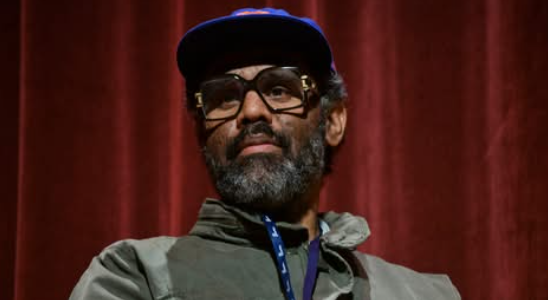Sacha Jenkins, Visionary Hip-Hop Documentarian and Cultural Archivist, Dies at 54
“Rest in power to one of the greatest documentarians of the culture.”
Sacha Jenkins, a towering figure in the worlds of journalism, music, film, and cultural storytelling, died on Friday, May 23, 2025, at the age of 54. The celebrated writer, filmmaker, musician, and documentarian passed away after a prolonged battle with multiple system atrophy (MSA), a rare and debilitating neurodegenerative disorder. Jenkins’ death was confirmed by his wife, author and filmmaker Raquel Cepeda-Jenkins, who shared a deeply personal tribute on social media, offering a rare and intimate look into his final days.
Jenkins was a creative force whose passion for storytelling and commitment to documenting the many layers of hip-hop culture helped shape the way the genre is viewed, both inside and outside of the community. His legacy is immense, his impact immeasurable.
A Cultural Torchbearer
Sacha Jenkins was not just a chronicler of hip-hop—he was one of its fiercest advocates and most respected interpreters. Born in 1971, Jenkins emerged as a prominent voice in the 1990s, co-founding Ego Trip, a magazine that pushed the boundaries of cultural coverage with unflinching honesty, humor, and intellectual rigor. Alongside co-founder Elliot Wilson, Jenkins created a publication that saw hip-hop not just as a music genre, but as a cultural phenomenon worthy of academic respect, political critique, and creative celebration.
From its pages, Jenkins highlighted not only rap legends but also the outcasts, the underground acts, and the cultural intersections that made hip-hop such a vibrant and sprawling universe. Skateboarders, graffiti artists, punks, and poets—all had a place in Jenkins’ vision. What felt fringe to others, he viewed as essential threads in the broader fabric of Black and urban creativity.
In the words of many peers, Jenkins gave voice to the voiceless long before it became a mainstream endeavor.
A Documentarian of the People
Jenkins transitioned his storytelling from print to screen with the same skill and authenticity that marked his writing. His documentaries are now regarded as crucial cultural artifacts.
Among his most celebrated works is the Emmy-nominated Wu-Tang Clan: Of Mics and Men, a searing and poetic deep-dive into the lives, music, and legacy of the iconic Staten Island hip-hop collective. With Fresh Dressed, Jenkins examined the evolution of fashion in hip-hop culture, while Everything’s Gonna Be All White offered a provocative and unfiltered conversation about race and identity in America.
In 2022, Jenkins released Louis Armstrong’s Black & Blues, a documentary that reframed the life of the jazz legend through a Black lens, celebrating Armstrong not only as a musician but as a complex figure navigating racism, fame, and cultural responsibility.
Through all his work, Jenkins made it clear: Black culture is American culture. And it deserves to be told with care, intellect, and revolutionary heart.
The Final Days: A Family’s Grief and Grace
His passing was shared by his wife, Raquel Cepeda-Jenkins, who posted a series of photos and deeply moving reflections on Instagram. She spoke candidly about the pain and exhaustion of watching her husband struggle with MSA—a rare condition often mistaken in its early stages for Parkinson’s disease, but which quickly escalates into a more aggressive and unrelenting form.
“Friday greeted us like most mornings over the last couple of months,” she wrote. “Sacha, in bed, his head slightly tilted to the left, eyes shut, barely moving… I prayed for his spirit to soar, to fly up, up in the sky.”
In her emotional account, she recounted a routine morning that became heartbreakingly final. Jenkins’ 13-year-old son was the first to realize something was wrong. Together, they cried out for Sacha to wake up. But he didn’t.
Still, Cepeda-Jenkins says she feels his presence: “I can still feel him.”
A Personal and Professional Legacy
To fans and fellow creatives alike, Jenkins was more than a documentarian—he was a cultural shaman. His work resonated because it was built on love: love for the culture, for the people, and for the power of truth-telling. His pen was sharp, his lens clear, and his heart open.
As a young fan of hip-hop journalism in the 1990s, seeing Jenkins’ byline in Vibe, Rolling Stone, and other publications was like receiving a signal from someone who “got it.” His voice stood out. It was the voice of someone who had lived the stories he told.
Jenkins’ influence also extended to television. He was instrumental in creating offbeat yet culturally significant shows like Miss Rap Supreme and Ego Trip’s The (White) Rapper Show for VH1, which fused entertainment with critical cultural commentary, long before that became fashionable.
Survived by Family, Remembered by a Movement
Sacha Jenkins is survived by his wife Raquel, their son, and his daughter Djali Brown-Cepeda—a film producer herself—and his grandson. In many ways, Jenkins’ legacy lives on through them, through the filmmakers and storytellers he inspired, and through the countless lives his work touched.
He was 54 years old, and yet in many ways, he lived lifetimes. The kind of lifetimes that make a culture feel seen.
As the world mourns his loss, tributes continue to pour in from all corners of the hip-hop, film, and journalism communities. Artists, activists, and scholars alike are sharing memories, quotes, and stories of how Jenkins shaped their work and worldview.
A Final Note
It’s hard to overstate how much Sacha Jenkins meant to hip-hop culture, to storytelling, and to truth. He didn’t just document the moment—he was the moment. Again and again.
His wife said it best: “Sacha was still brilliant, creative and present… his creative impulses kept him alive.”
Now, his work will keep him alive. Forever.
Rest in power, Sacha Jenkins. Your story will never end.

